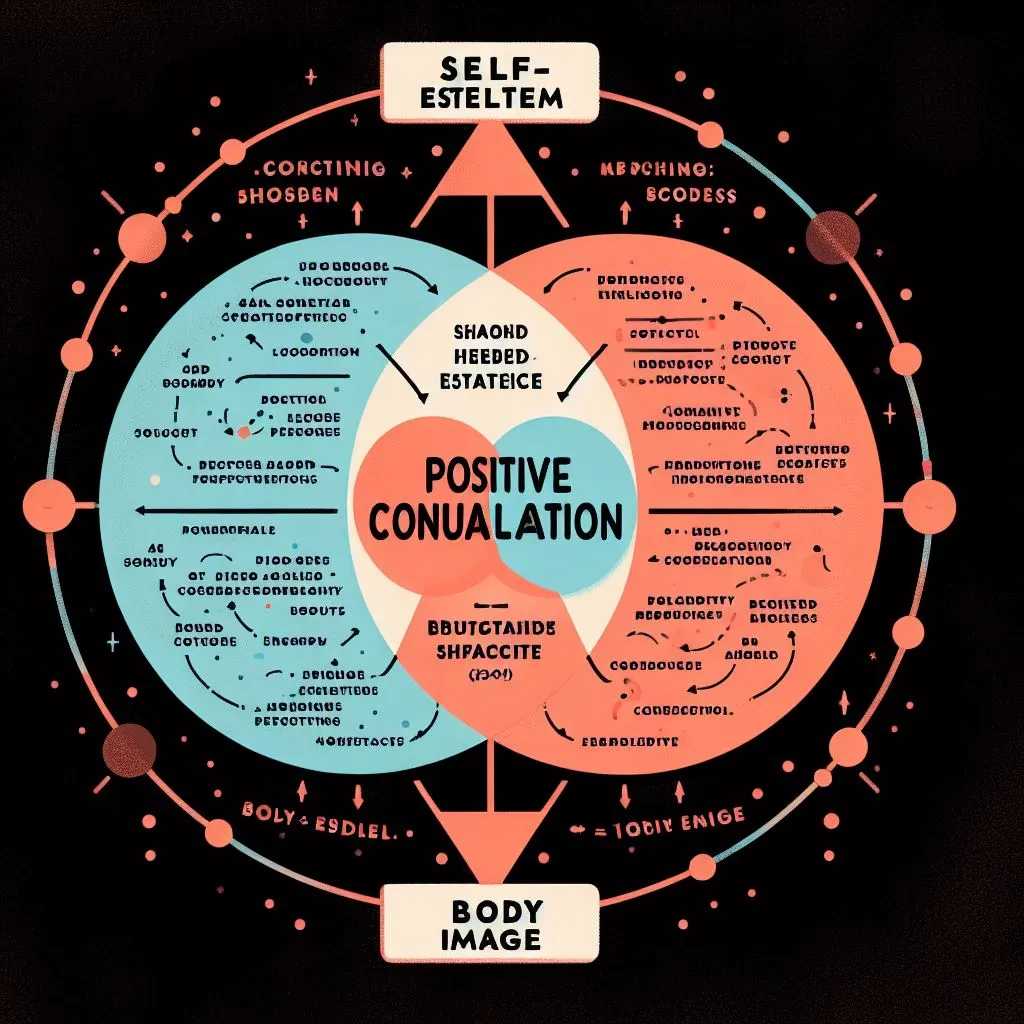You know, I used to really struggle with knowing who I was deep down. It felt like I was constantly changing and shifting depending on who I was with or what situation I was in. I never felt fully comfortable in my own skin.
This led to really low self-esteem where I felt the need to put myself down before others could. I’d make jokes at my own expense thinking it made me seem more likable but really it just came from a place of not feeling good enough.
It also made it hard to try new things or go after opportunities because I didn’t believe in my own abilities to succeed. What if I failed? Then who would I be? The not knowing held me back from a lot of personal growth experiences that could have helped shape a stronger sense of self.
Low self-esteem and low self-efficacy often go hand-in-hand with identity struggles. When someone is unsure of who they are or has conflicting feelings about their identity, it can undermine their confidence and belief in themselves. People with low self-esteem may doubt their own self-worth and abilities.
They are more likely to criticize themselves harshly and feel like a failure. Low self-efficacy refers to doubting your own capabilities. Those experiencing an identity crisis may feel incapable of achieving goals or handling challenges because they lack a clear sense of identity to draw strength and motivation from.
There are a few key ways that low self-esteem and low self-efficacy related to identity struggles show up.
Avoiding new activities and challenges
People experiencing an identity crisis and related low self-esteem/efficacy tend to avoid trying new things that they may fail at or feel uncomfortable with. This is because they doubt their abilities and fear looking incapable or “foolish.”
Quitting tasks when they become difficult
Linked to low confidence in their skills, those with identity struggles are more likely to give up on tasks once they encounter problems or a learning curve. They don’t believe they have what it takes to push through challenges.
Excessive perfectionism
To overcompensate for feelings of inadequacy, individuals may hold themselves to unrealistically high standards. Any mistakes or less than perfect performance trigger harsh self-criticism and damage their self-worth further.
Withdrawing socially
Due to concerns about judgment from others, those with identity/self-esteem issues often isolate themselves or avoid social interactions where they could feel insecure or “not good enough.”
Engaging in negative self-talk
Inner criticism and pessimistic thinking patterns are common as the person mentally puts themselves down through self-statements they believe to be true about their perceived flaws or limitations.
How Does Low Self-Esteem Manifest Itself?
Low self-esteem often manifests itself through excessive self-criticism and negative self-talk. Someone with low self-esteem may constantly put themselves down in their thoughts with statements like “I’m not good enough” or “Why do I always mess things up?”. This harsh internal dialogue can eat away at a person’s sense of self-worth over time.
Low self-esteem also typically leads to insecurity – doubting one’s own abilities and seeking constant validation from others. A person with low self-esteem may find it difficult to feel comfortable in social situations for fear of being judged. Perfectionism is another common way low self-esteem presents, where a person believes they need to be perfect in order to feel worthy of love or respect.
Any mistake or flaw is seen as a personal failure rather than an opportunity to learn. This prevents self-acceptance of one’s imperfections. Overall, low self-esteem reflects an underlying lack of self-worth or valuing of oneself.
What Is The Difference Between Low Self-Efficacy And Low Self-Esteem?
Low self-esteem is seeing little worth in yourself as a person, while low self-efficacy is doubting your ability to complete tasks and achieve goals. Self-esteem is an emotional view of self, and self-efficacy is a belief about your capabilities.
Now here’s a table comparing low self-esteem vs low self-efficacy in more detail:
| Low Self-Esteem | Low Self-Efficacy |
| Global view of self that affects overall identity. | Specific beliefs about capabilities and skills. |
| Emotional issue related to feelings of self-worth. | Belief-based issue related to perceptions of competence. |
| Undermines whole identity development | Can undermine identity aspects tied to doubted abilities. |
| Requires changing core beliefs about inherent value. | Can build back up through gaining experience and skills. |
| Healing involves positive self-talk and acceptance. | Healing involves mastery experiences and social modeling. |
| View of “I’m not good enough”. | View of “I can’t do this/accomplish that”. |
How Does Low Self-Esteem Affect Identity?
Low self-esteem can definitely make figuring out your identity a real struggle. When you don’t feel good about yourself on the inside, it bleeds out into every area of life.
Difficulty defining who they are – With low self-worth, it’s challenging to develop a clear sense of identity or understanding of personal values, strengths, and goals.
Unstable identity – Due to relying heavily on external factors for validation and approval, one’s identity may shift frequently depending on circumstances and how others perceive them.
Struggle committing to an identity – Always second-guessing choices and doubting abilities makes it hard to fully commit to an identity path versus constantly questioning it.
Adopting the identities of influential people – Those with low self-esteem may shape their identity based more on others they admire rather than their own authentic interests and qualities.
Hiding one’s true identity – Certain aspects of a person’s identity may be suppressed or hidden from others due to shame and fear of rejection related to low self-worth.
Overcompensating with identity – At times, those with low self-esteem may over-index on certain identity domains seen as strengths to compensate for feeling deficient in other areas.
Confusing identity with achievements – When self-worth is too closely tied to accomplishments and performance, setbacks can undermine both motivation and sense of identity.
Recommended Books
Albert Bandura, a pioneer in self-efficacy research, explores in his book “Self-Efficacy: The Exercise of Control” how beliefs about capabilities in specific domains impact identity and choice patterns (2).
“The Self-Esteem Workbook” by Matthew McKay and Patrick Fanning examines the cognitive distortions that underlie both conditions and how addressing those beliefs can strengthen identity (3).



